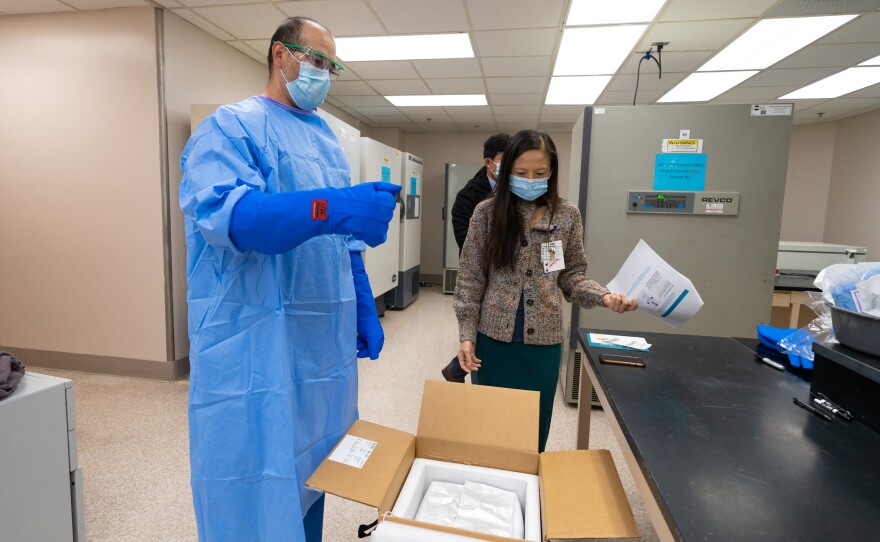They are nothing short of a miracle of modern science, vaccines for this deadly pandemic that would’ve taken years to perfect before the new m-RNA method being used by Pfizer and Moderna among others.
Along with continued vigilance to the all-too-familiar public safety measures — masks, physical distancing, hand washing — health experts say the vaccines are our way out of this nightmare.
But it’s likely some people, for a variety of reasons, will refuse the vaccine. So, can employers force them to take it?
San Diego employment law attorney Dan Eaton says the answer is a “qualified yes.”
“Employers cannot require employees who have medical conditions that would be complicated by the vaccine and they cannot require employees who have bonafide religious objections to taking the vaccine,” Eaton said.
But the number of people who fall into those two categories is expected to be quite small. For everybody else, Eaton said, “Employers do have broad latitude as part of their duty to maintain a safe and healthful workplace."
RELATED: FDA Analysis Of Moderna COVID-19 Vaccine Finds It Effective And Safe
“I would say that we’re gonna be a lot more successful with an education campaign initially about why we need to do it," said Keith Maddox with the San Diego and Imperial Counties Labor Council.
Maddox agreed that an important function of unions is to protect workers from what they see as onerous requirements of employers, but he said this case is different.
“Safety and health is one of the most critical things that we have discussions around ... protecting the safety of workers inside of those worksites and that’s definitely what this is," Maddox said.
Maddox said most union members he knows will want the vaccine, and beyond that, he said a lot of union workers are going to play a critical role in getting the vaccines into people’s arms.
“CVS and Walgreens, our members, our union members in those worksites are all going to be part of giving the vaccines.”
Back to the law, and the question of what employers can do about people who refuse to take the vaccine — the ones who don’t have health conditions or sincere religious objections. Dan Eaton said short of termination, employers have another option.
“Simply to require employees to continue to wear personal protective equipment, masks, face shields, other kinds of things.
But Eaton said in the final analysis, science moves faster than the law, and he said the acceptance of science and what it tells us about these new vaccines should be the primary focus of society as we move toward the end of the era of COVID-19.






